Sitting in her Melbourne lounge room, Tetsuko 'Tess' McKenzie flips through faded photographs with her family.
But one image has never left her mind — the blinding flash of 6 August 1945 when she witnessed the world's first nuclear bomb strike the Japanese city of Hiroshima.
"I was standing on a railway platform when suddenly a strong white light flashed into my eyes," the 96-year-old told SBS News.
"And I turned to my friend and asked her, 'What is that?'"
"The next thing we heard was a tremendous noise, and then, in a gap between the hills, we saw white smoke rising. Gradually, it formed into a mushroom shape."
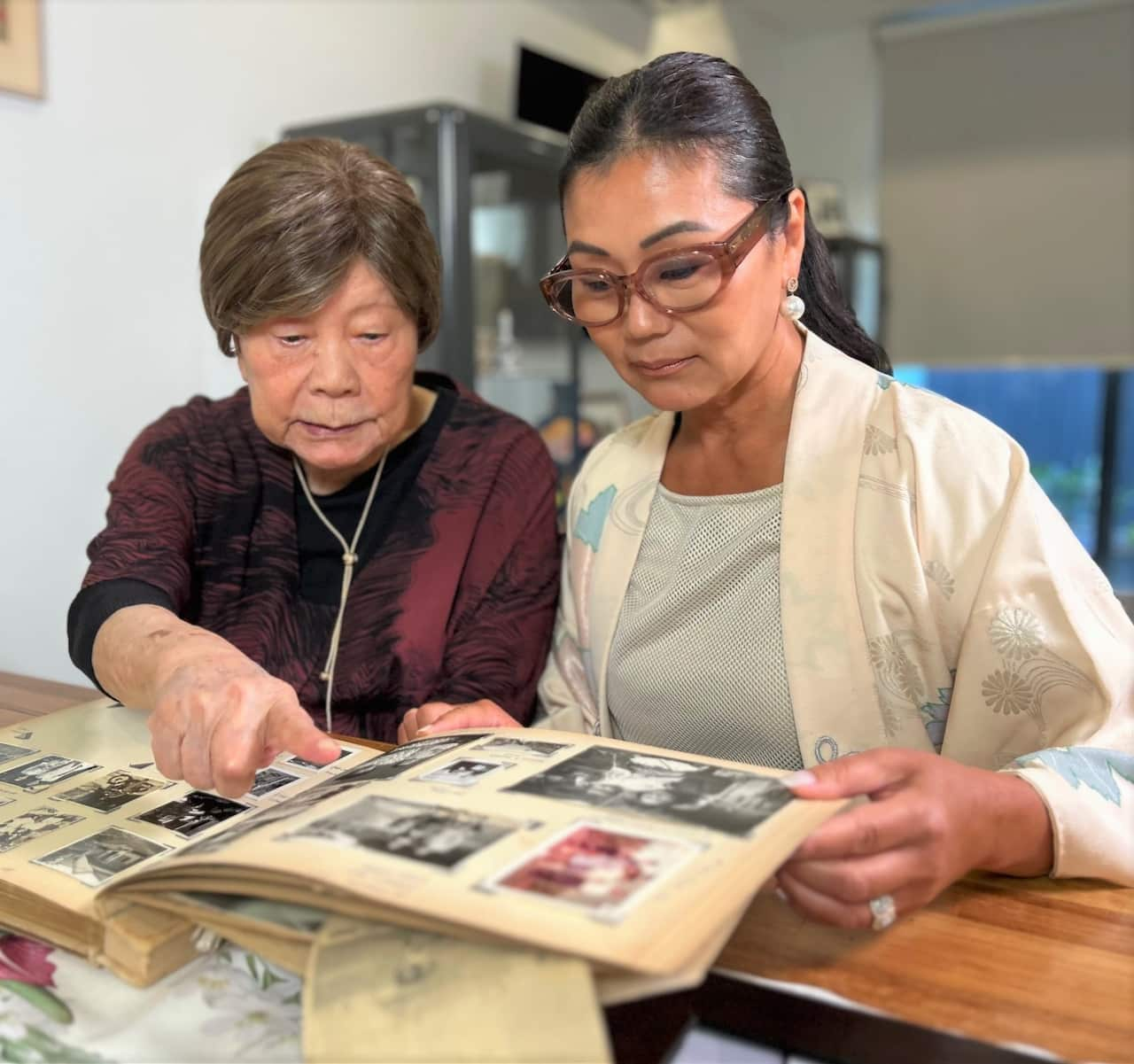
Tetsuko 'Tess' McKenzie (left) looking at old photos with her granddaughter Eri Ibuki. Source: SBS / Scott Cardwell
The 16-year-old was on the way to the city to watch a movie with a friend. By an extraordinary twist of fate, they missed their train — a narrow escape that to this day she gives thanks for.
"Oh yes, if we had caught that scheduled train, we would have been right in Hiroshima when the bomb fell," she said.
Nicknamed 'Little Boy', the atomic bomb caused widespread destruction and was a major factor in Japan's surrender which ended World War Two.
"We had no idea what it was. Then at around midday, the radio stations announced that a bomb fell on Hiroshima," McKenzie recalled.
A slightly larger plutonium bomb exploded over Nagasaki three days later, causing more destruction.
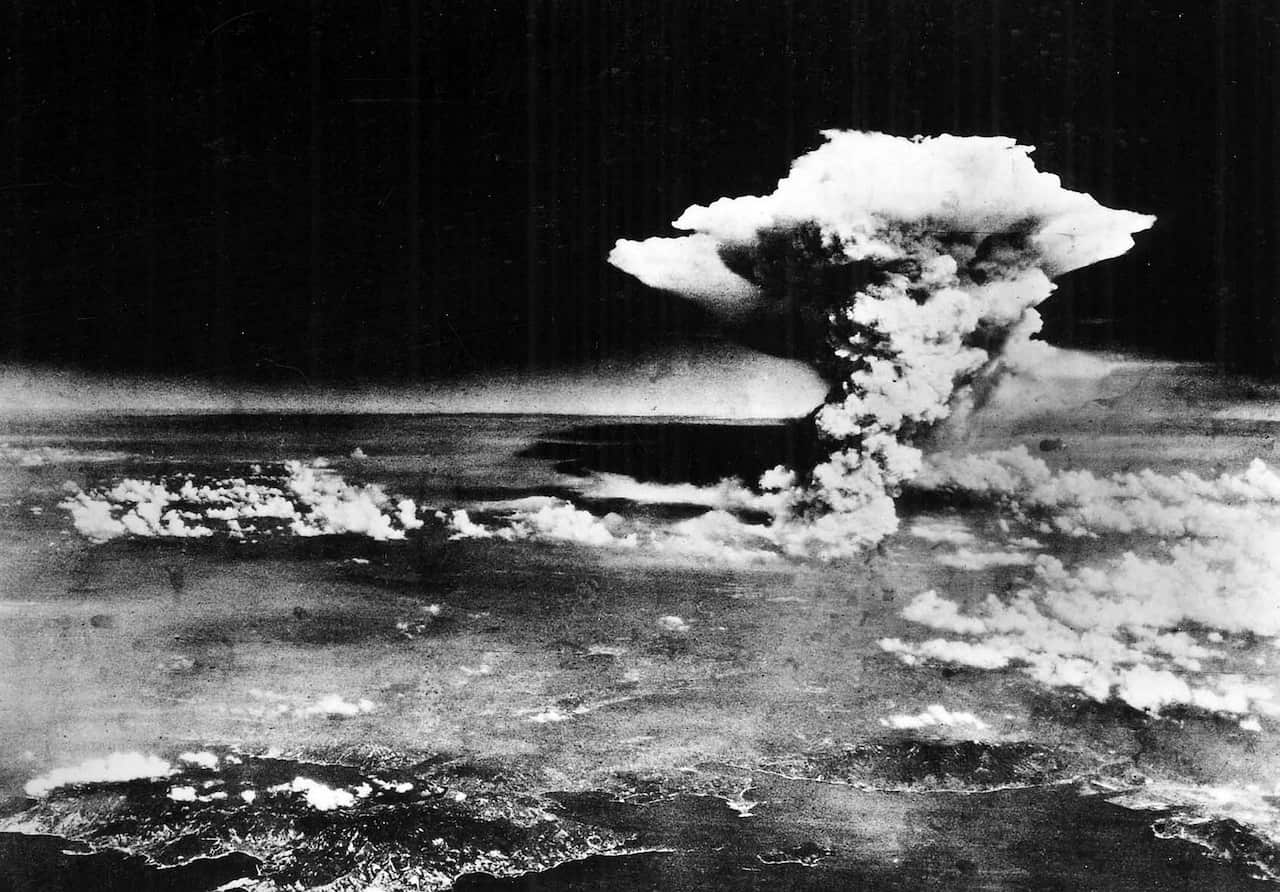
The explosion marked the first use of atomic weapons in warfare and had a profound impact on the course of history. Credit: Getty
"After we saw the cloud, we took another train towards the city but eventually that was stopped and the authorities put us off. We had to walk a long way home, and it took many hours," McKenzie said.
Her family in their hometown of Kure, east of Hiroshima, believed she had perished in the blast and were later amazed when she returned home.
"From then on, I started believing in God. And even these days, I thank God when I wake up every morning and before I go to sleep each night," she said.
Even so, McKenzie and her family suffered the impacts of war. Their port city was razed by allied bombs.
"Kure was burned out. The allied bombs fell all night until there was nothing left.
"We hid in tunnels, and a night we heard the explosions. And I was crying 'I do not want to die here, I do not want to die."
From Hiroshima to Melbourne: Journey of a 'war bride'
McKenzie's life took another unexpected turn at 19 when she met an Australian soldier while working for the British Commonwealth Occupation Forces.
"I thought to myself, 'Oh, he is good looking'. And he was very good-looking," she said with a giggle.
Corporal Ray Murray McKenzie was 22, and soon after, the pair began courting.
But it wasn't simple — Japanese girls had been warned to stay away from enemy soldiers.
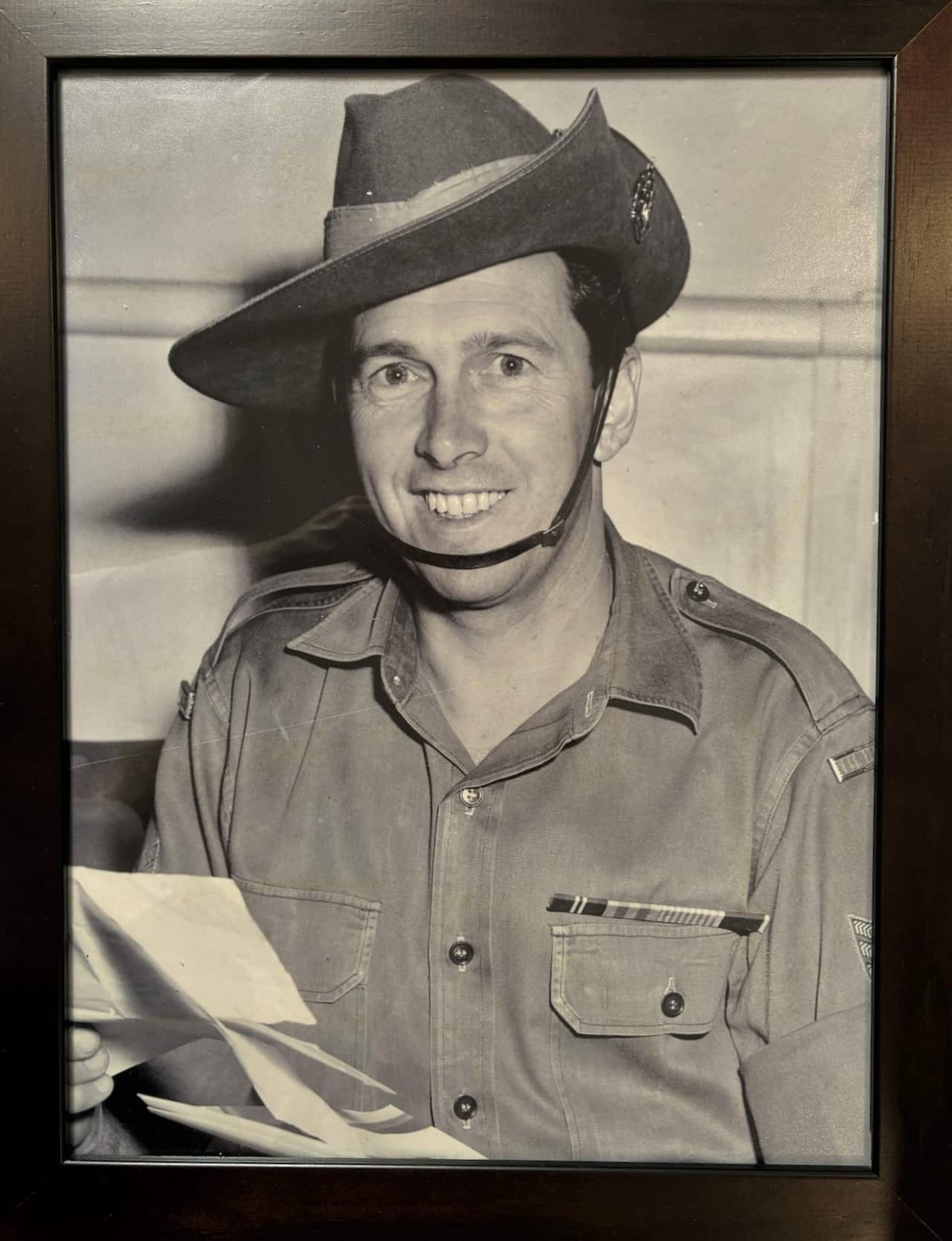
Australian soldier Ray McKenzie was stationed in Japan when he met Tetsuko. Source: Supplied / Tetsuko McKenzie
"But they slowly changed their minds when they learned that most Australians were very sincere and had warm hearts," she said.
The couple married in 1952 and made a home in Melbourne, marking the beginning of McKenzie's life as a 'war bride' — a term used for women who married soldiers and immigrated to their partner's home country after the war.
McKenzie said her husband's family made her feel welcome and helped her establish a new life in Australia, far from home.
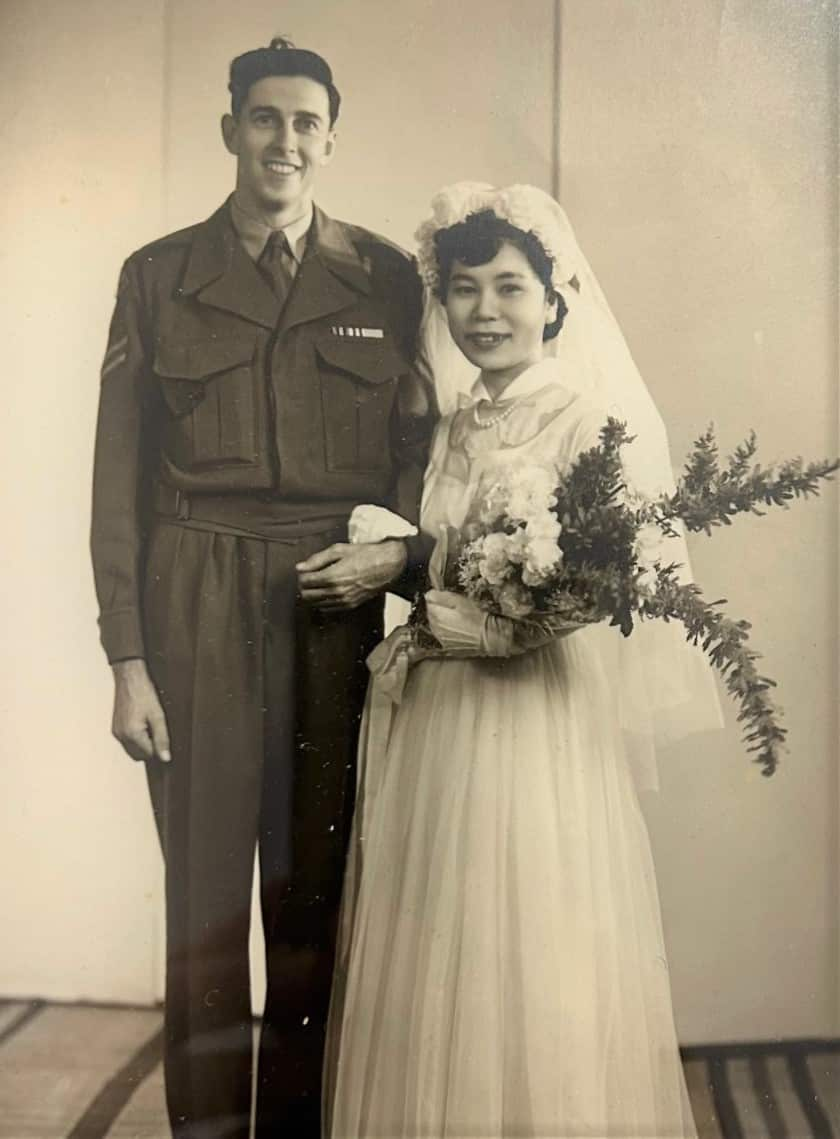
Tetsuko married Australian soldier Ray McKenzie in 1952 and moved to Melbourne. Source: Supplied / Tetsuko McKenzie
"Life was very hard at first, in this unknown place," she said.
McKenzie was among more than 650 Japanese war brides who migrated to Australia after the end of World War Two.
Some struggled to settle and McKenzie shared memories of a friend who was rejected by her mother-in-law.
“She suffered harsh treatment and was forced to do all the dirty work around the house," McKenzie said.
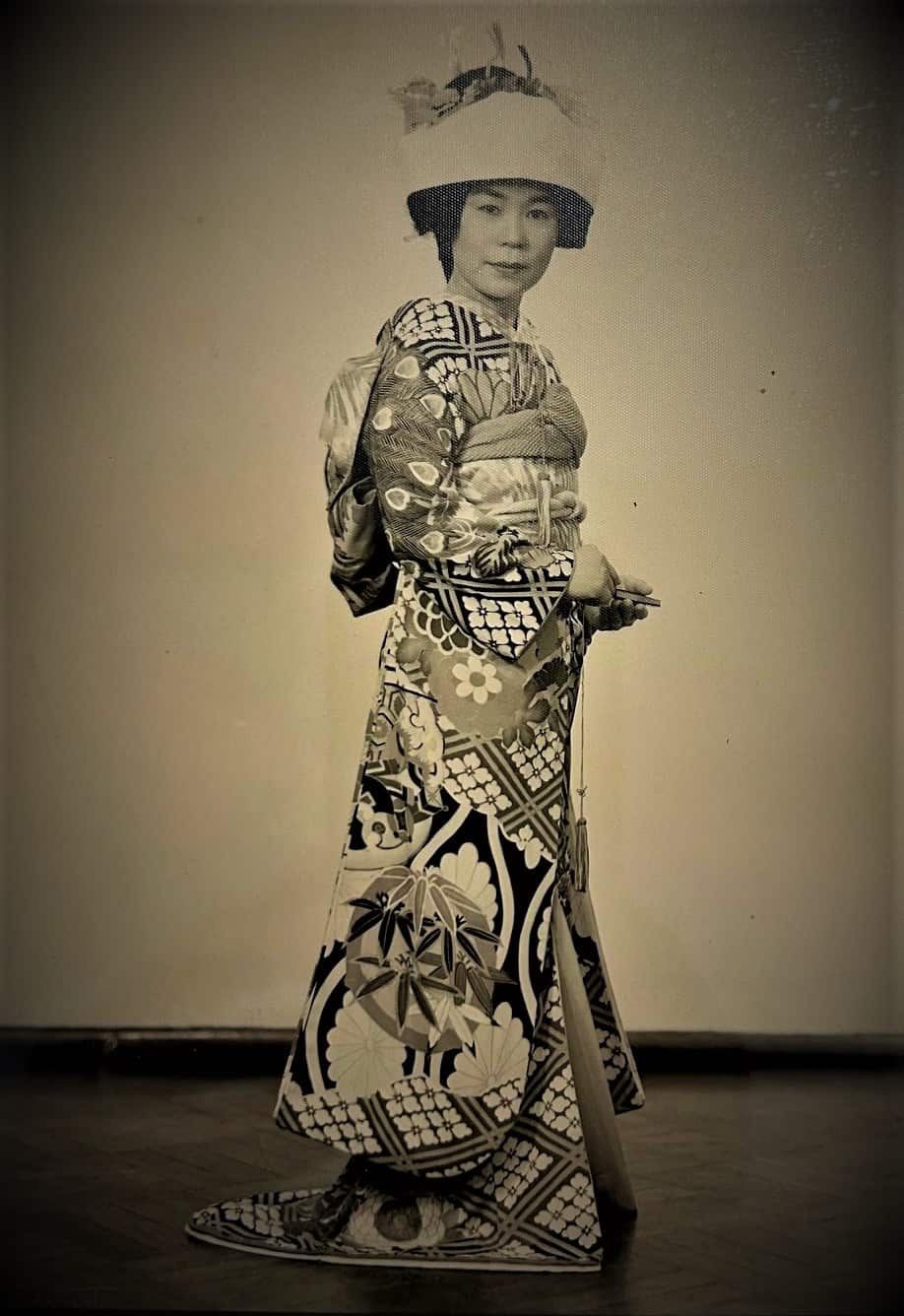
Tetsuko McKenzie on her wedding day in 1952, in traditional Japanese attire. Source: Supplied / Tetsuko McKenzie
After decades of marriage, McKenzie lost her husband, Ray, 18 years ago. She remains close to her extended family, especially Eri Ibuki and Tahila Pynt.
"When she first told us about her experience, we just couldn't believe it. And she still remembers every detail," granddaughter Ibuki said.
"We are all very proud of nanna and the way she radiates happiness and peace. And we are so grateful to still have her with us today," Ibuki said.
Like many young people of Japanese descent living in Australia, Ibuki and Pynt are eager to learn about their heritage and regret that, growing up, only English was spoken at home.
"I would have loved to learn Japanese and it is definitely something that I would love my kids to learn, to better connect with their culture," said great-granddaughter Pynt, 21.
"I plan to visit Hiroshima next year and look forward to touring the Hiroshima Peace Memorial Museum to learn more about the atomic bomb and the devastation that it caused.
"I expect it to be heartbreaking, really, knowing that someone from my family lived through that."
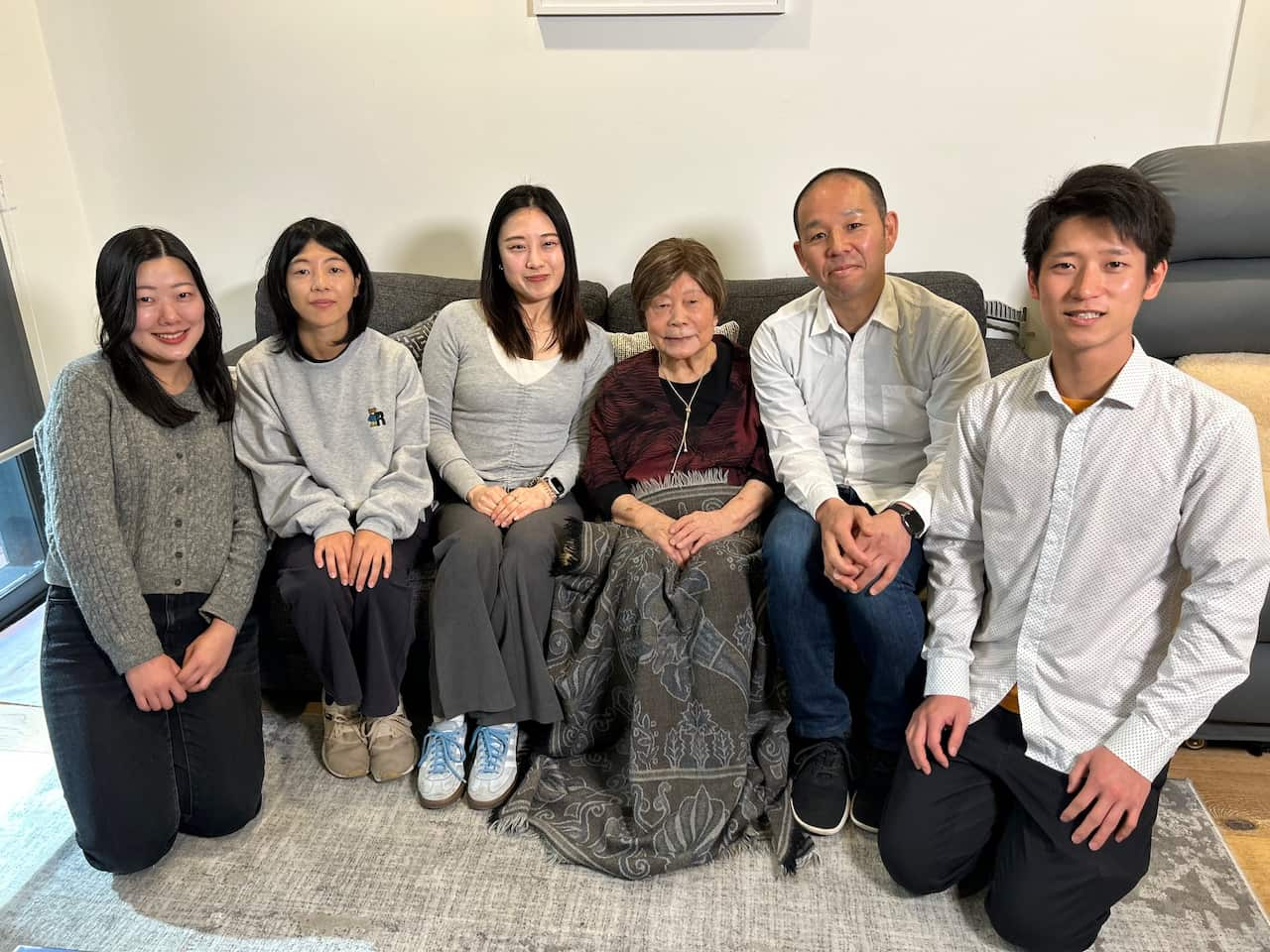
Tetsuko McKenzie loves to share her stories about her life in Japan with young students. Source: SBS / Scott Cardwell
"Her stories and experiences are just so precious and unique," Takahashi said.
"It helps to understand about the destruction and the loss of life."
McKenzie said the 80th anniversary of the bombing is a time to reflect not only on the lives lost, but also on the broader consequences of atomic warfare — particularly as nuclear tensions rise in some parts of the world.
"We must never forget what happened in Hiroshima and Nagasaki.
"Yet countries keep making weapons to destroy people.
"When I heard that World War Two had ended, I was very happy, but at the same time, so many people had lost their lives.
"And what was it all for?"
This story has been produced in collaboration with SBS Japanese


